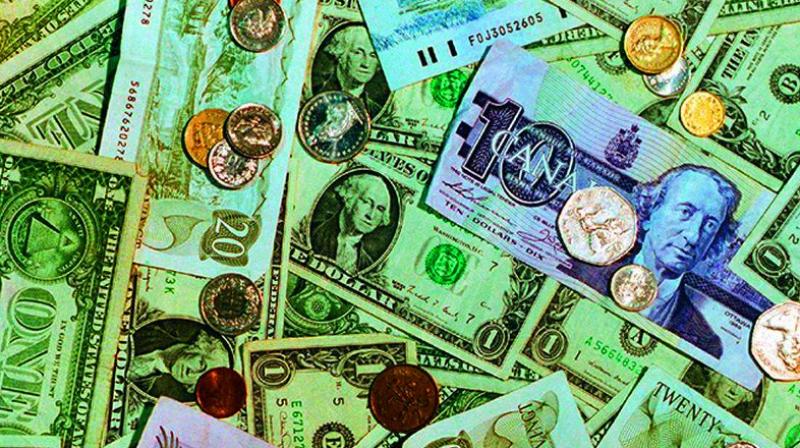Dollar resumes its ascent, Asia keeps wary eye on yuan

Sydney: The US dollar held on to broad gains on Tuesday, resuming its ascent after last week's brief wobble as the prospect of rising US interest rates this year kept sentiment bullish on the long-run.
A holiday in Japan made for quiet early trade, leaving the dollar steady at 117.36 yen but well up on Friday's trough of 116.05.
Against a basket of currencies, the dollar was firm at 102.800 having climbed 0.6 per cent overnight.
The euro was sulking at $1.0461 despite strong manufacturing data for the currency bloc, having surrendered all of Friday's brief spike to $1.0700.
A dearth of liquidity was largely behind the wild swings, though the market is now so long dollars that it is vulnerable to sudden corrections.
Data released on Friday showed speculators increasing their bets on the dollar in the week up to last Tuesday after cutting positions for the first time since October in the previous week.
The greenback had soared to 14-year highs in December on speculation the US Federal Reserve will hike rates as many as three times this year, and that President-elect Donald Trump will stoke growth and inflation with debt-funded tax cuts.
Treasury yields have jumped in anticipation while central banks in the euro zone and Japan are still working to keep their short-term yields deep in negative territory.
As a result, US two-year debt pays 200 basis points more than German debt and 138 basis points more than Japanese paper.
"Following a period of consolidation between now and late January, we believe the USD will put on another 10 per cent of gains over the next eighteen months," said Richard Grace, chief currency strategist at CBA.
Grace argued Trump's proposed plans for a US company tax cut could be particularly bullish for the dollar since it would likely encourage a wave of repatriation by domestic firms and demand for US equities by foreign investors.
"We anticipate some twelve-to-eighteen months of USD strength, beginning when the Trump Administration gets its tax cuts through the Congress," he added, citing late March as likely timing for passage.
Dealers are also keeping a wary eye on the yuan as annual quotas covering how much foreign currency Chinese individuals can buy are reset this week.
China's foreign exchange regulator said on Saturday that the $50,000 annual individual quota will remain unchanged, but some banks have told customers that purchases of foreign currency for buying property, securities and life insurance were not allowed.
The new rules on overseas currency transfers are not capital controls, the official Xinhua news agency reported,
There has been talk investors could rush to sell the yuan fearing further depreciation in the currency, forcing the country's central bank to run down its reserves to head off a self-fulfilling spiral.

